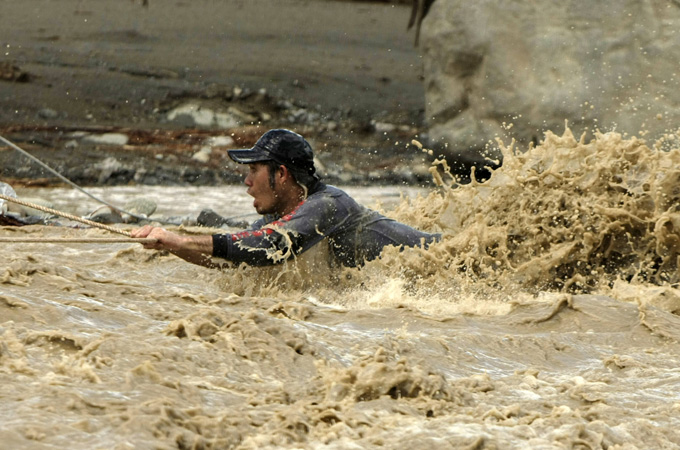Government and UN ask international community to help the victims of Typhoon Bopha, as death toll rises to nearly 650.
The Philippine government and the United Nations are launching a global appeal to help the victims of Typhoon Bopha, as the toll continues to climb, while hundreds of people are still missing after the storm devastated the south of the country.
At least 650 people are killed, while millions are left homeless and in desperate need of food aid and other basic goods, the country's disaster chief in Manila told Al Jazeera.
At least 650 people are killed, while millions are left homeless and in desperate need of food aid and other basic goods, the country's disaster chief in Manila told Al Jazeera.
Benito Ramos said that 647 bodies had been found and 900 people were still missing, including hundreds of fishermen.
Rescuers continued searching for bodies or signs of life under tonnes of fallen trees and boulders in the worst-hit town of New Bataan, where rocks, mud and other rubble destroyed landmarks, making it doubly difficult to search places where houses once stood.
"This is a scale the Philippines has not previously seen, we’re talking about tens of thousands of homes destroyed across southeast Mindanao," Joe Curry of Catholic Relief Service told Al Jazeera.
"People live in fragile housing and when storms like this hit … it wipes out entire communities."
Hundreds of refugees, rescuers and aid workers took a break on Sunday to watch the Manny Pacquiao-Juan Manuel Marquez fight on a big TV screen, only to be dismayed by their hero's sixth-round knockout.
Nearly 400,000 people, mostly from Compostela Valley and nearby Davao Oriental province, have lost their homes and are crowded inside evacuation centres or staying with relatives.
Missing fishermen
Families and fishing companies reported losing contact with more than 300 fishermen at sea.
Ramos said the authorities were unprepared for the unprecedented weather in those areas worst affected, and that it was struggling to cope with the disaster.
"Right now, we have some international organisations and governments assisting us, but our supplies are still insufficient at this moment," he said.
The fishermen from southern General Santos city and nearby Sarangani province left a few days before Bopha hit the main southern island of Mindanao on Tuesday, causing deadly flash floods.
Ramos said the fishermen were headed to the Spratly Islands in the South China Sea and to the Pacific Ocean and there had been no contact from them for a week.
He said the coast guard, navy and fishing vessels had launched a search.
Benigno Aquino III, the Philippine president, declared a state of national calamity on Friday, which allows for price controls on basic commodities in typhoon-affected areas and the quick release of emergency funds.















